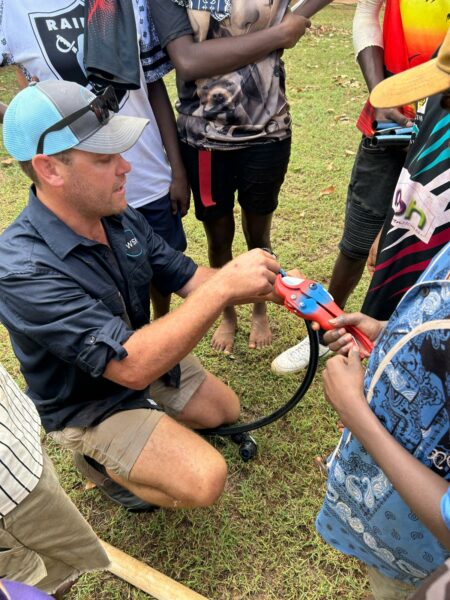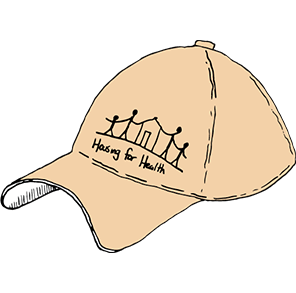REFLECTION: A Plumber’s perspective on Housing for Health
A plumber reflects on his involvement in a recent NT Housing for Health project.
Without plumbers, electricians and builders, there is no project.

Tyson working on remote IWSH projects providing important training to the next generation of local plumbers.
Plumbing is the work that we do every day, but it takes an experience such as working with Healthabitat that makes you step back and realise the impact.
Housing for Health methodology, ‘No Survey Without Service’, hangs on the ability for licensed tradespeople to start working on the ground Day 1, following behind the community team carrying out the House Survey.
Tyson, an experienced plumber with a long history of working with IWSH and World Skills around the world, recently travelled to the NT to join his first Housing for Health project.
Tyson reflected with us on his experience, lessons and findings. It is great to have new perspectives of the value of work, especially through the lens of tradespeople – thanks Tyson!
Q – What did you think of the Healthabitat process?
The process was effective and satisfying in the way of being able to immediately rectify issues in the houses that had been identified by the surveying crew. Being able to work simultaneously with the surveying crew meant completing these fixes quickly, meaning improved access and was less impact and inconvenience to the community and occupants
Q – Did you have any realisations that you didn’t expect from your experience?
It was interesting to reflect on the experience after carrying out the work in these communities. Plumbing is the work that we do every day, but it takes an experience such as working with Healthabitat that makes you step back and realise the impact. On a regular day we design and install or fix a few issues here and there, but when you work on a project it makes you realise the work that we do every day makes such a large impact on the lives of others.
Q – Did you have any realisations about the link between housing and health?
The main realisation I had from the experience was that a lot of the work that needed to be done stemmed from the lack of routine maintenance and the delay in the repairs to be undertaken. In some cases, a long-term leak would lead to larger issues and further health issues, through mold and damp. Small fixes completed regularly through routine maintenance would improve the housing quality and reduce the need for large repairs and reduce the risk of impacts on health and well-being of the community. #Maintenance Is Sexy
Q – Will you take any new skills away to use in your plumbing trade, teaching or life?
An all-round better understanding of the importance of design and the need for quality installation that is going to meet the end user’s needs. More consideration on a daily basis regarding the products being used when providing maintenance schedules to factor the water type and quality and the lifespan of products.
Q – What are some of the key plumbing issues you came across in your work?
Some of the key plumbing issues were mainly those around drainage, functional issues with basins and toilets, safe and effective supply of water. These issues were mainly impacting the function of washing facilities. These issues, once identified, were able to be quickly resolved therefore having a significant improvement to the function and access for washing facilities for the occupants.









